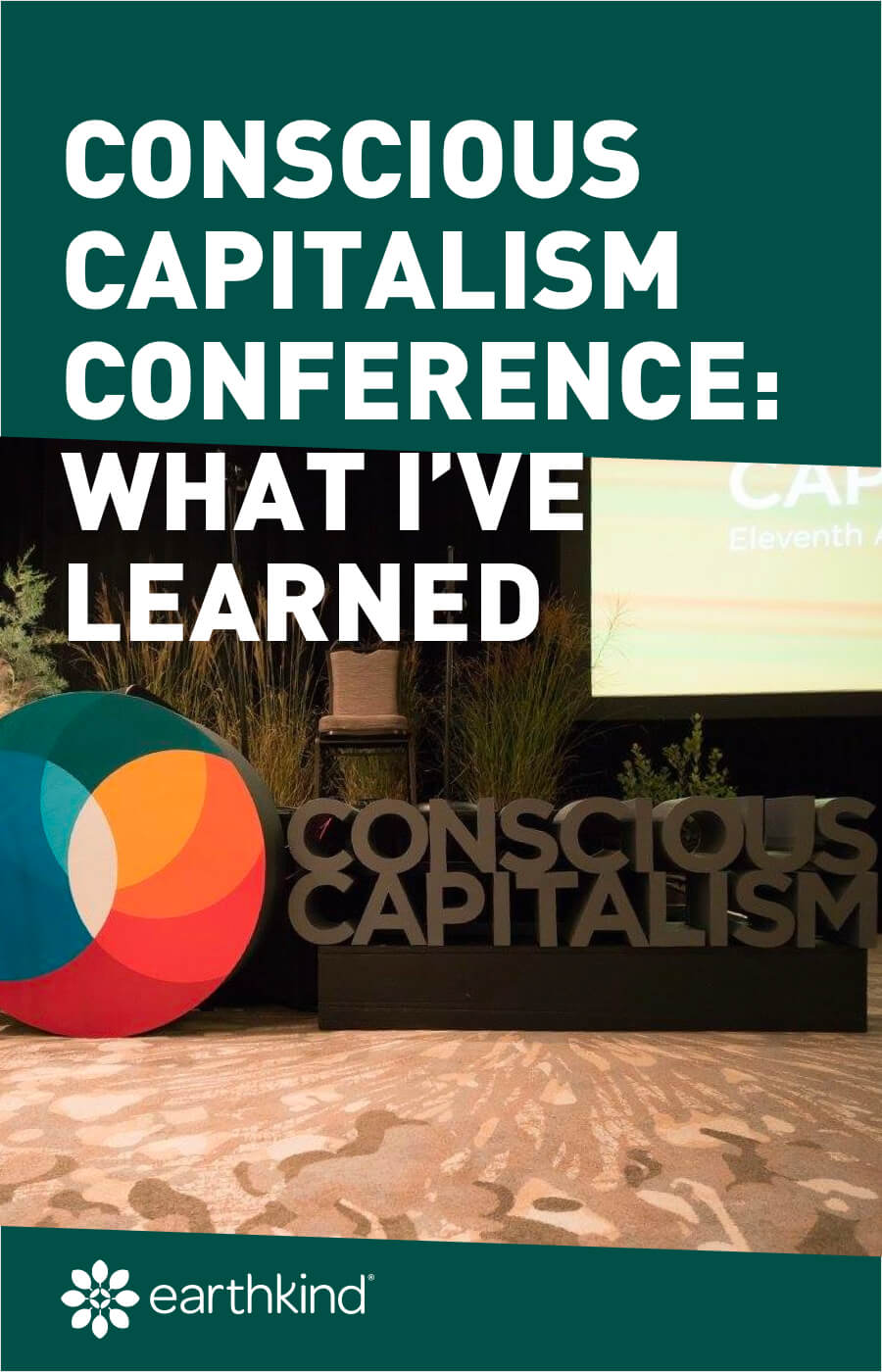
Earlier this month I was invited to attend Conscious Capitalism’s 2017 CEO Summit in Austin, TX. I was excited and honored to be rubbing shoulders with the great minds behind this growing movement, a movement that will be the business model of the future. Whether we like to believe it or not, our current system is broken and it takes exceptional individuals working with a common purpose to make the kind of changes necessary to create a whole new way of doing business.
When you work flat out at building your business it can be very isolating. Being with like-minded CEOs was a bit like coming out of a coma—I’m seeing things in a whole new way, with a sense of direction that before had eluded me. I learned that you cannot do it alone and being immersed in their thinking was exhilarating on a whole new level. In my own way I had been working towards the same goal, but collectively I now realize we can move mountains and improve lives.
Conscious Capitalism is not new, it’s just not been in the forefront of media attention, because the people practicing it and living and breathing it are not seeking the limelight—they are agents of change. Not until the more high profile CEOs like Ron Shaich, CEO and founder of St. Louis-based Panera Bread Co., started challenging the status quo, has it began to make news and create waves—positive waves of change.
The Conscious Capitalism conference was co-founded by Austin-based Whole Foods Market Inc. Co-Founder and CEO John Mackey, and serves as a forum on the tenets of conscious capitalism — and a source of inspiration for business leaders to apply those tenets for the betterment of all.
Four principles compose conscious capitalism:
i. A higher purpose in addition to making the profits that enable business to survive. Companies that infuse what they do with meaning engage stakeholders, employees and customers.
ii. A rejection that a company’s only responsibility is to its shareholders.
Instead, a company is responsible to all players that exist within its ecosystem – employees, customers, suppliers, funders, supportive communities – as well as shareholders.
iii. Leadership that seeks to serve all those within the company’s ecosystem.
iv. A culture comprising values that foster love, care and trust among those
within the company’s ecosystem.
Now this was a big a-ha moment – I could have been saying that about EarthKind®. These are certainly the principles I based my company on and strive to practice. You know, this gave me goosebumps… when you see everything you were visioning up there in front of you as large as life, being articulated by business titans, it moves you to tears… and not just me!
I have so much to share with you and will be writing several blogs on the subject, but here are my first top take-aways:
- What makes a company last?
- Talented leaders, with huge hearts for others.
- Being able to adapt and learn. Leaders have to regularly transform themselves—in order to lead we must first transform ourselves before we can transform our organizations—leading by example.
- Having a function in society (this is why business exists, right?)
- Having a strong purpose that is used to connect all the dots from supply chain through the customer experience. Say goodbye to silos and bureaucracy. This is how I lead EarthKind®—you see this in my ‘We Are One Family’ Guiding Principles, everyone has the same purpose.
- Create value for all stakeholders. This is really challenging, and that’s why I’ve never succumbed to the lure of fast growth via investors who use that as an illusion. It’s really a disillusion! Don’t take capital until you decide on how value is created, and for whom.
- Corporations must have ethical standards. These guide everything from decisions to actions to results. There must be a lens or filter through which everything is run. Leaders can’t forget about the health of our political and socioeconomics and environments. I think about it all the time, as evidenced by my activities to improve it. That’s what visionary transformational leaders do.
- Companies must have a governance approach that evolves. All terms must be short and evaluated. Imagine if federal government did this? We wouldn’t have the corruption and special interests that we currently have. (You know I have more to say on this topic!)
2. How do you know if you are a Conscious Business?
- First and foremost, does your purpose fulfill a deep-seated need for customers? Not just their wants or desires, but something they really need? Take our FreshCab product for example. We get over 100 calls a day, customers are distraught because the product is out of stock. You know you have true purpose when your customers are genuinely distraught if you cease to exist.
- Does your investment in R&D reflect the higher purpose? We invest in the current biggest public health issues—rodents, mosquitos and cockroaches. We don’t just do it to compete, we do it because no one has addressed it safely, effectively and affordably.
- Do your employees find their work intrinsically satisfying that goes beyond their salary? The best ones would leave if our purpose was not being addressed.
- Do you have a clear vision of how the world would will look if you fulfill your purpose? I do. I see heaven on earth, all life living in harmony—that’s my long-term vision.
 For corporate America, this may sound a bit touchy-feely and not grounded in profit, but nothing could be further from the truth. It’s a misconception. Everyone I met in Austin was making money. What’s different about conscious capitalism, though, is that it’s not a zero-sum game. When interviewed by the Austin Business Journal,
For corporate America, this may sound a bit touchy-feely and not grounded in profit, but nothing could be further from the truth. It’s a misconception. Everyone I met in Austin was making money. What’s different about conscious capitalism, though, is that it’s not a zero-sum game. When interviewed by the Austin Business Journal,
Brian Schult,z the owner, CEO and founder of Dallas-based Studio Movie Grill Concepts I Ltd., had this to say: “We’re creating sustainable practices where everyone benefits — the consumers, the employees, the investors, the vendors and myself.”
And no one can argue with the success of Panera Bread. Prior to Panera’s $7.2 billion acquisition earlier this year by Luxembourg-based JAB Holding Co., “Panera was the best-performing restaurant stock of the past 20 years, delivering a total shareholder return up 86-fold from July 18, 1997 to July 18, 2017, compared to a less than two-fold increase for the S&P 500 during the same period,” said Ron Shaich, CEO and founder of St. Louis-based Panera Bread Co. “What’s more, our stock generated annualized returns of 25 percent in the same time frame, which I’m proud to say is better than the returns of Warren Buffet’s Berkshire Hathaway during the same period.”
I’m ready, ready to do my part in changing the way America does business…are you with me?


